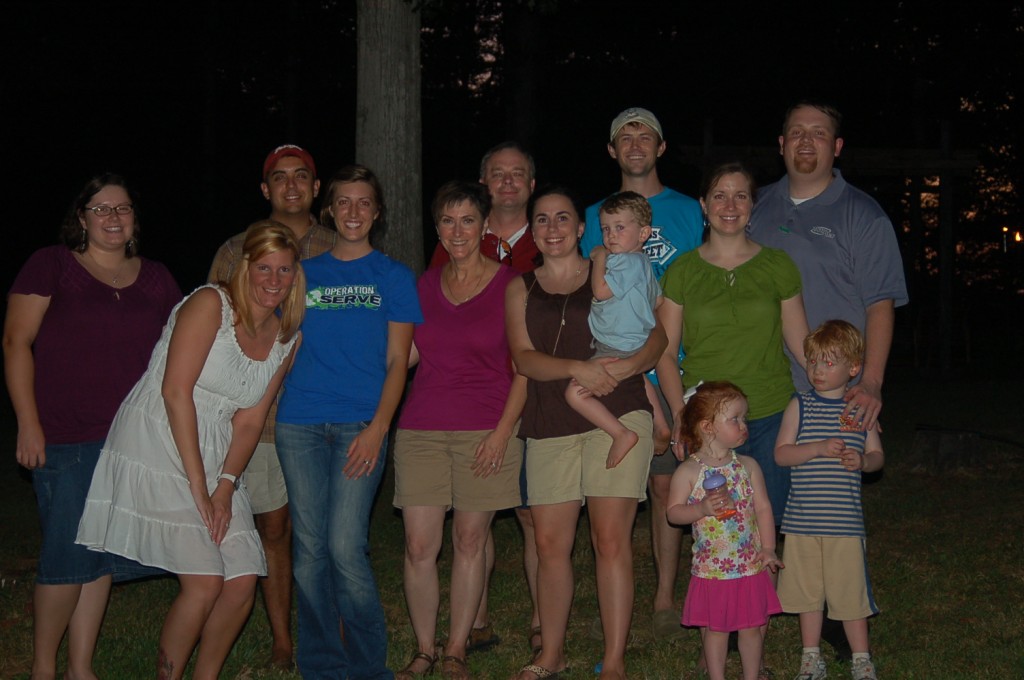 Mark Driscoll founded Mars Hill Church in Seattle, Washington. He also founded the Acts 29 Church Planting network, as well as The Resurgence.
Mark Driscoll founded Mars Hill Church in Seattle, Washington. He also founded the Acts 29 Church Planting network, as well as The Resurgence.
Mark spoke on fear.
In dealing with fear, the first question to ask is this:
What are you afraid of?
Heights? Widths? Mice? Bugs? Snakes? Spiders? Clowns?
Conflict? Failure? Criticism? Embarrassment?
Fear in the mind causes stress in the body.
It’s invariable that leaders have fear. Your body starts to manifest the fear. Maybe that’s a nervous eye twitch. Maybe that’s canker sores.
Then you start eating badly or drinking too much.
You start getting sinus problems and headaches. Some of you just start reading a lot of books on the rapture, wanting this life to just be over.
Mark was afraid when he started Mars Hill: what if this doesn’t work?
Then people came, and his fear was: what if they stay?
Luke 12:25 says, “Who of you by worrying can add a single hour to his life?”
Fear is not always a sin, but it is always an opportunity
In dealing with fear, the second question to ask is this:
Who are you afraid of?
This is one of the most important question a leader can ask. Because someone other than God is taking the place that only God should have in our lives. We feel like we need someone to feed us, praise us, and not oppose us…we begin to need them for life. We place people in positions of fear, then we worship them as functional gods.
When you fear someone, you cannot love them. Because to love someone is to give to them, but to fear them is to take from them.
The key of all idolatry is that we trade the creator God for created things…and other people are the likely candidates for this.
Proverbs 29:25 shows us that the fear of man is a trap. It may be that you’re afraid of someone, or that you’re in awe of a person, giving them too much influence on your spiritual, emotional, and spiritual well-being.
The fear of man is fearing others instead of God. At a young age, it’s called peer pressure. As adults, it’s called co-dependency or people pleasing.
Do you have a fear of man problem?
- Whose opinion matters way too much to you?
- Is your appetite for praise too healthy?
- Are you overly devastated by criticism? Criticism may hurt…but it shouldn’t devastate. Criticism is constant, instant, permanent, and global. (Rick Warren)
- Are you committed to things and people that God did not call you to? Don’t follow other people’s calling on your life…follow God’s.
What is fear?
1. Fear is vision without hope.
Fear means that we see vision in the worst possible scenario, and we freak out. Fear sees the future, and says that it’s going to be painful and so it drives you to stress and fear.
2. Fear isn’t always rational, but it is always powerful.
3. Fear is about not getting what we want
…or getting what we want and losing it…or getting what we don’t want.
4. Fear preaches a false Gospel.
It says, “There is a potential Hell awaiting you, and you could have an alternative heaven on earth, so you need a functional savior.” It gives us a false hell, a false heaven, and a false savior. It’s a savior that we, through fear, have created in our imagination.
5. Fear turns us all into false prophets.
Ever been afraid of a future event, then when you got there, it wasn’t just like you thought it would be?
What is the solution to fear?
The Bible says, “Fear not.” Which is the most frequently listed commandment in the whole book.
But the Bible says that it’s not just about facing your fears…it’s about being with God.
The Bible on Fear
- Adam, our first father, as we see in Genesis 3, is afraid after he sins. He’s hiding, and God comes to him and answers his fear by being present with Adam. He pursues Adam in the midst of his fear.
- Abraham, in Genesis 15:1, is told to fear not because God is his shield.
- Isaac, in Genesis 26:24, is told to fear not because God is with him. He’s told to remember he’s not alone.
- Genesis 28:15: “I am with you.”
- Exodus 33:14, Moses is told that God’s presence will go with him. “how can I lead these people? I don’t know where we’re going, but I’ve got to lead them!” God’s answer isn’t “here’s a map,” but it’s “here I am.”
- Elijah, on the battlefield, in 2 Kings 1:15, “Fear not!” (on the brink of war)
- David: Psalm 23 says, “Even though I walk through the valley of the shadow of death, I will not fear, because God is with me.” Things may not be ok, but I’m ok because God is with me.
- Isaiah 41:14: “Do not fear, you worm of Jacob.” Can you think of anything more defenseless than a worm? Little girls pick them up and mock them. “Little Israel, fear not, for I myself will help you.” Though the fears are real, the lack of resources is real…fear not, I bring resources.
- Jeremiah 1:8 – fear not, for I am with you.” Jeremiah has lots to be afraid of. He smote sad that indie rockers. He’s the “weeping prophet.” “Why did I get out of my mother’s womb? Cursed is the man who brought my mother the news that I was going to be a boy.” He couldn’t’ even get married. He was depressed, by himself, an indie rocker poet.
- Daniel 10:12: fear not, Daniel, for I have come.”
- Haggai 2:4-5: be strong, be strong, be strong.” Be strong because God is with him.
- What did God tell Mary through the angel? Fear not, teenage girl. God will be with you.
- Matthew 28:20 – “I will be with you.”
You know what we have to fear more than anything? DEATH.
But the worst thing that can happen to you is that you die and go to be with Jesus. We need to reset our worst-case scenario. The worst-case scenario is that you go to be with Jesus sooner rather than later…that’s not so bad!
When times are at the hardest, and your grief goes the deepest, remember, “Fear not, God is with you.”
Everything may not be ok, but if God is with you, you’re ok.










